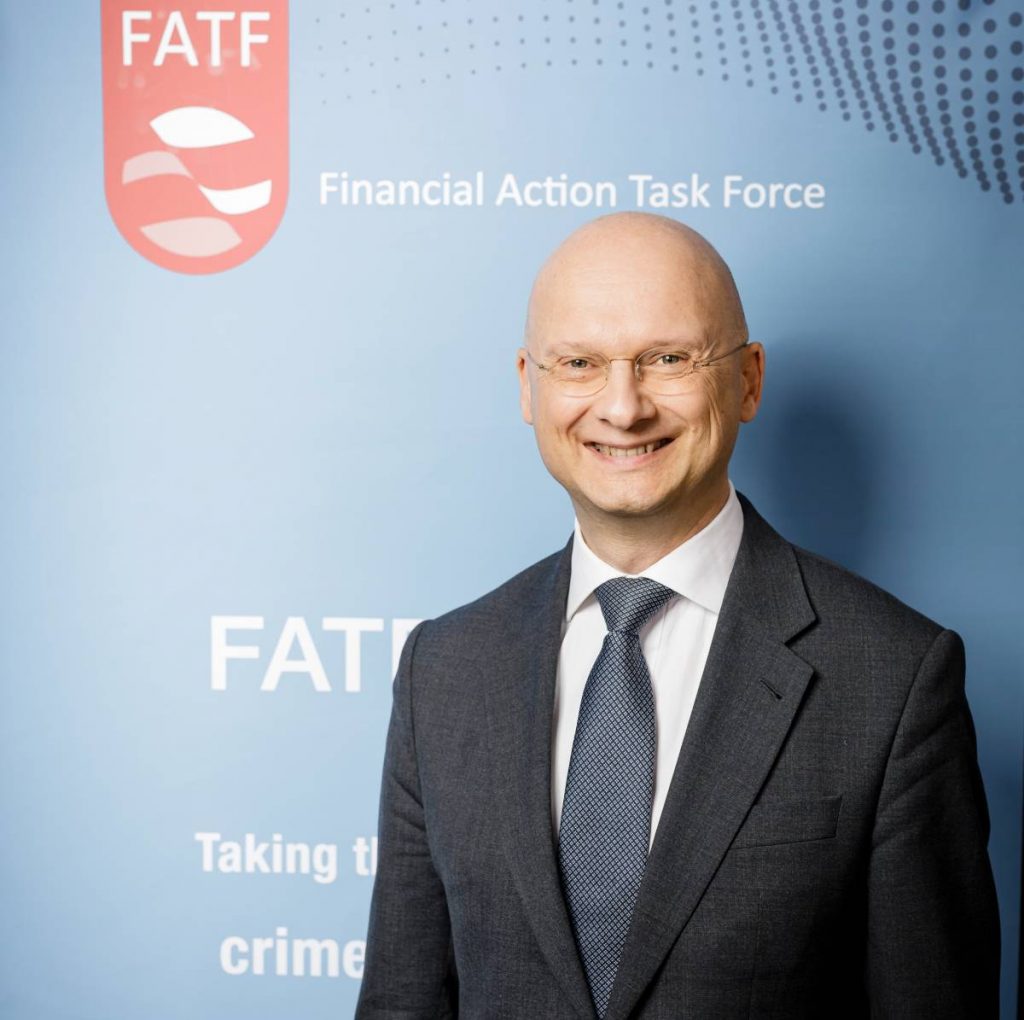
FATF president said the multilateral watchdog’s members could consider removing Pakistan from the grey list only after conducting two separate on-site inspections following the completion of the old and new action plans, reports Asian Lite News
The Financial Action Task Force (FATF) has refused to take Pakistan out of the ‘Grey List’ yet again. On Friday, it said Pakistan had failed to take appropriate action against UN-designated terrorists such as 26/11 accused Hafiz Saeed and JeM chief Masood Azhar.
Although the global anti-money laundering and terror financing body has acknowledged some progress made by Pakistan, it said the country should continue to work to address its strategically-important deficiencies.
FATF president Marcus Pleyer said the decision was taken at the conclusion of the virtual plenary of the Paris-based organisation. Pakistan continues to remain on “increased monitoring list”, Pleyer said at a virtual press conference. “Increased monitoring list” is the another name for the Grey List.
Pleyer said Pakistan has now completed 26 of the 27 action items given to it in 2018. The FATF has asked Pakistan to take action against UN designated terrorists, he said.

The UN designated terrorists based in Pakistan include Jaish-e-Mohammed chief Azhar, Lashker-e-Taiba founder Saeed and its “operational commander” Zakiur Rehman Lakhvi. All three are most wanted terrorists in India for their involvement in numerous terrorist acts.
On June 4, in a follow-up report published on Pakistan, the FATF had said, “Overall, Pakistan has made notable progress in addressing the technical compliance deficiencies identified in its MER and has been re-rated on 22 Recommendations.”
ALSO READ – Pakistan expanding its nuclear arsenal
Pleyer said the Pakistan government has failed to check risk of money laundering, leading to corruption and terror financing.
“The FATF encourages Pakistan to continue to make progress to address as soon as possible the one remaining Combating the Financing of Terrorism-related item by demonstrating that Terror Financing investigations and prosecutions target senior leaders and commanders of UN designated terrorist groups,” an FATF statement said.
FATF president Pleyer said the multilateral watchdog’s members could consider removing Pakistan from the grey list only after conducting two separate on-site inspections following the completion of the old and new action plans. The inspections would have to demonstrate that improvements made by Pakistan are sustainable, he told a virtual news briefing.
An outcome statement issued at the end of the meeting referred to the remaining item in the old action plan and said: “The FATF encourages Pakistan to continue to make progress to address as soon as possible the one remaining CFT (counterterrorist financing)-related item by demonstrating that TF (terrorist financing) investigations and prosecutions target senior leaders and commanders of UN-designated terrorist groups.”
ALSO READ – Gen Bajwa kindles old romance with US
So far, Pakistani authorities have only prosecuted senior leaders of LeT and JuD, including Saeed and several of his senior aides. Saeed and some of his aides are currently serving sentences given to them after they were found guilty in a string of terror financing cases last year.
However, no action has been taken against leaders of JeM, such as its chief Masood Azhar, despite the group being linked to several high-profile terror attacks in recent years, or the Afghan Taliban, which has stepped up fund raising on Pakistani soil in recent weeks against the backdrop of the withdrawal of US and NATO forces from Afghanistan.

Pleyer said the new action plan to tackle money laundering was drawn up after FATF’s regional partner, the Asia Pacific Group, identified a “number of serious issues” during an assessment in 2019. The outcome statement said Pakistan had committed itself to the new action plan this month to address “strategic deficiencies”.
The new action plan includes six items, including enhancing international cooperation by amending Pakistan’s mutual legal assistance law, and seeking help from foreign countries to implement counterterror designations under UN Security Council Resolution 1373.
Time to call Pakistan’s bluff
However, despite warnings, Pakistan’s machinations to hoodwink the international community remain the same. In 2018, when it was put in the ‘Grey List’ Islamabad had obliged to fulfill a 27-point action plan. But it has played within legal loopholes to provide a cosmetic pretence of action. Instead of taking action against terror groups, Pakistan has rebranded terror groups in Kashmir under the name of The Resistance Front (TRF).
This newly-formed group, according to security experts, is just old wine in a new bottle. Experts believe that TRF is only a new name given to Lashkar-e-Toiba, Hizbul Mujahideen, and Jaish-e-Mohammed (JeM), who are active in the Valley.

But the recent verdict to acquit Omar Sheikh the prime accused in Daniel Pearl’s murder has again exposed Pakistan’s game plan. Soon after the verdict was given, Sheikh and four of his associates were shifted to a newly-built government facility, with family access from 9 AM to 5 PM.
Another interesting fact is the pruning of a list of 7,600 individuals Pakistan had vowed to take action against terror financing to FATF in September 2018. However, by January 2019, 4,000 names from that list, which were booked under the Anti-Terrorism Act, went missing.
ALSO READ – India slams Pakistan for its human rights situation


